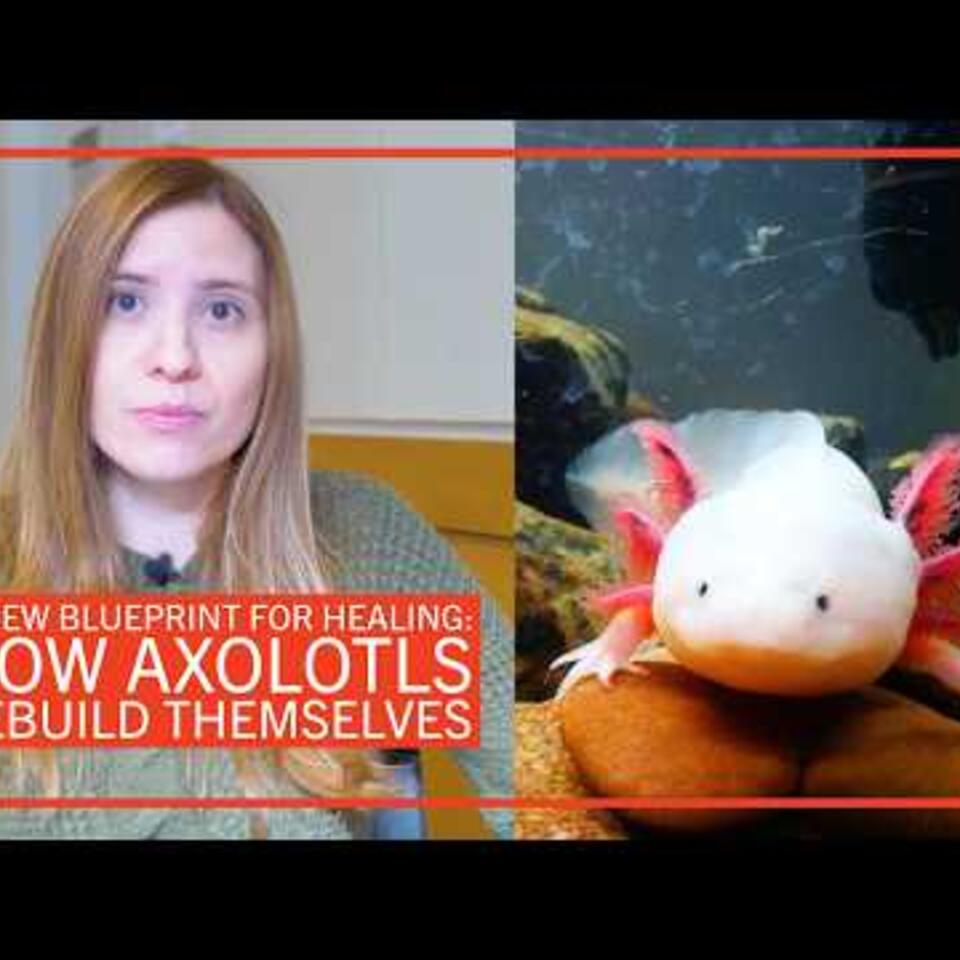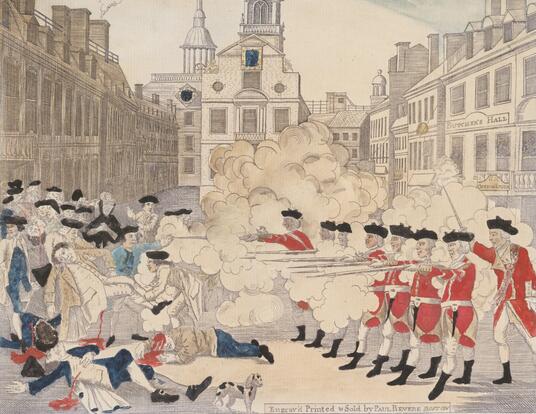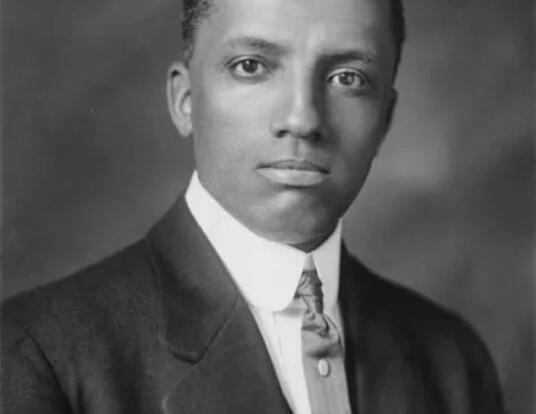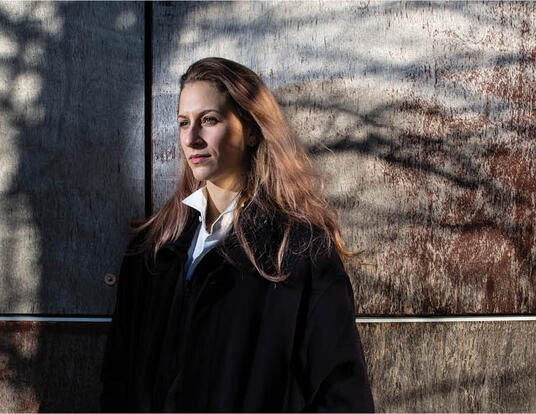Student Center
The Advising Project puts student well-being at the heart of the mentoring relationship
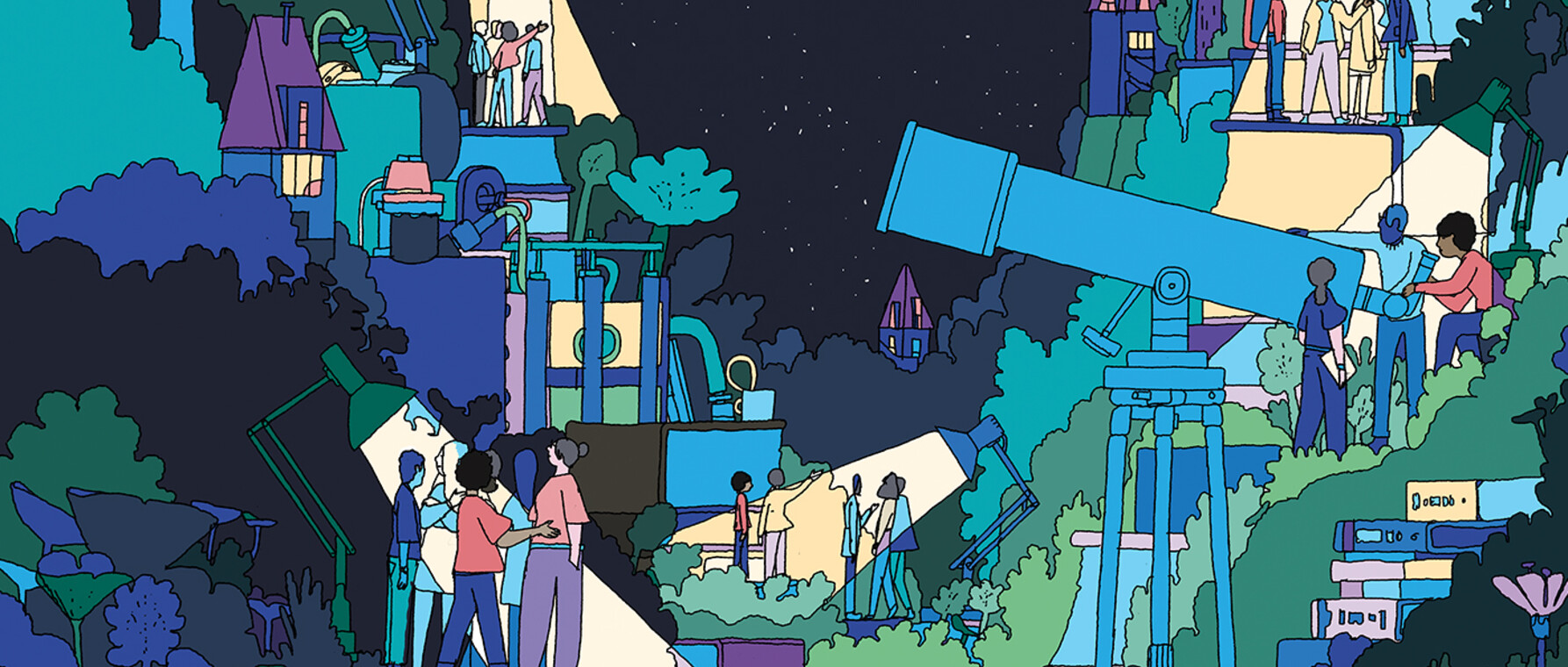
Karina Gonzalez Herrera enrolled at Harvard’s Graduate School of Arts and Sciences (GSAS) in the fall of 2010.
Only a few months later, she felt ready to drop out.
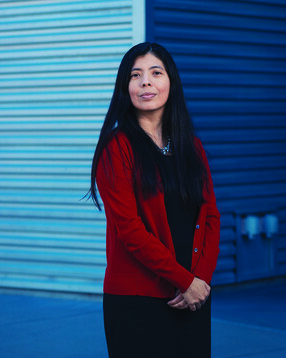
The problem wasn’t the work. Gonzalez Herrera could handle the academic demands of the Program in Biological and Biomedical Sciences. The hardest part of the transition to graduate school for the first-generation Latina PhD student was the distance from her close-knit family and diverse community in southern California. Now on the other side of the country, studying at a mostly white institution, she felt disconnected, isolated, and alone.
“As an undergraduate, I went to a small California state school close to where my family lived,” she says. “The population of minority students was pretty high. I was surrounded by folks who were from backgrounds traditionally underrepresented at universities. They understood me. Being away from my family and support system was stressful. And I didn’t want to let people know that I was struggling because I didn’t want to let anyone down.”
Fortunately, Gonzalez Herrera connected with a faculty advisor who offered her the guidance and support she needed to succeed at GSAS. She continued with the program and in 2016 became the first in her family to earn a doctorate.
Being away from my family and support system was stressful. And I didn’t want to let people know that I was struggling because I didn’t want to let anyone down.
—Karina Gonzalez Herrera, PhD ’16
Ensuring the success of all students, including those like Gonzalez Herrera— now associate director of diversity and minority affairs at GSAS/Division of Medical Sciences—is the main focus of The Advising Project, an in-depth, two-year initiative focused on improving the advising experience of master’s and PhD students at GSAS. A top priority of Dean Emma Dench, the project seeks to change institutional culture by putting advising at the center of the educational experience, enabling faculty to enhance their skills to become more effective advisors and empowering students to get the most out of their mentoring relationships.
A Skill Set That Can Be Grown
Although most GSAS students reported a favorable advising experience in a survey administered not long after Dench assumed leadership of the School in 2018, she was skeptical of the results. Even though the survey was anonymous, Dench thought students might still fear that their responses could be tracked and eventually reach their advisor. After she began serving in February 2019 on the University’s Task Force on Managing Student Mental Health—which last July reported rising levels of depression, anxiety, and other issues—Dench’s skepticism became concern: could the School be failing a significant portion of those it brought to campus?
“We launched The Advising Project in 2019 to identify what gets in the way of effective advising, to explore how we might intervene, and to teach, model, and encourage best practices,” she says. “In essence, we want to change the culture of GSAS with a new focus on advising—one that enriches the experience of both students and faculty.
Dench, herself an advisor, says that most faculty have a passion for working with students and care deeply about the advising relationship. Even so, faculty and students have different personalities, backgrounds, and perspectives. Effective advising often hinges on a mentor’s ability not only to pass on their expert knowledge and guidance but also to respond to the unique potential of each student.
“The old apprentice model—or at least a flat version of it—was designed to produce a ‘mini-me,’” Dench says. “The idea is that the person in the advising position has all the answers and they’re going to correct you until you become a version of them. But to my mind, the advising relationship is actually about empowering and unleashing you as a student.”
The old apprentice model—or at least a flat version of it—was designed to produce a ‘mini-me.’ But to my mind, the advising relationship is actually about empowering and unleashing you as a student.
—GSAS Dean Emma Dench
To achieve that goal, both faculty and student must understand the importance of the advising relationship, according to The Advising Project’s director, Reba Rosenberg, PhD ’08. Both are partners in the educational process. Both benefit from the relationship.
“Advising is hugely important on every level of the student experience,” she says, “including mental health, productivity, career satisfaction, and many others.
The idea behind The Advising Project is to make it a focus for both faculty and students, to provide space where people can talk and, most of all, learn.”
Rosenberg says that, with the release of the landmark 2019 report “The Science of Effective Mentorship in STEMM,” from the National Academies of Sciences, Engineering, and Medicine, robust data now supports the idea that mentors can be trained and that student outcomes improve as a result. The goal of The Advising Project is to put that evidence into action.
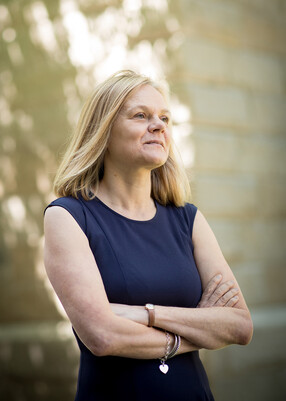
“In the academy, people learn how to research and write and teach.” She says, “We don’t focus as much on how to mentor, but randomized studies indicate that this skill can also be learned and that mentorship training has a significant impact on students. We can normalize discussions about mentorship and see it as something that’s worthy of time and attention.”
To that effect, the project has drawn on the curriculum and training of the Center for Improvement of Mentored Experiences in Research (CIMER). Based at the University of Wisconsin-Madison, CIMER’s mission is “To improve the research mentoring relationships for mentees and mentors at all career stages through the development, implementation, and study of evidence-based and culturally-responsive interventions.” CIMER Director Christine Pfund had conducted mentoring workshops on the Harvard campus twice already in 2019, once at the behest of the Department of Government, once of Grace Gill, PhD ’89, then director of Harvard Integrated Life Sciences, now part of the Office of Academic Programs’ team.
“I was just starting to research what GSAS was already doing regarding mentorship when I came across Grace’s CIMER brochure in the office, and I was excited to learn more,” says Rosenberg.
Rosenberg and Gill asked Pfund to return to Harvard and in January 2020 she delivered two public lectures on mentoring open to faculty from across the University, as well as a small hands-on workshop. Lecture participants included junior and senior faculty with years of mentoring experience. Now Rosenberg, Gill, and others across the University have themselves been trained as facilitators, running workshops that draw on CIMER and are tailored to the Harvard community. The training is designed to build competency in aligning expectations, promoting professional development, maintaining effective communication, addressing equity and inclusion, assessing understanding, fostering independence, and cultivating ethical behavior.
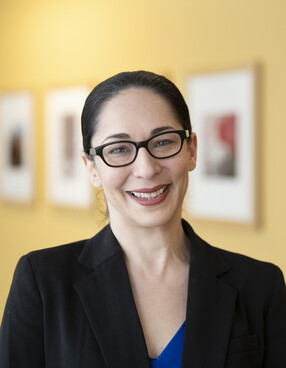
“These are extremely interactive sessions,” says Rosenberg. “It’s not us coming to a department and lecturing. Because we’re all research-based scholars, we begin with what the data say about the importance of mentoring and then quickly turn to real-world interactions between advisors and students. We study the cases, break down into small groups, and come back together. The trainings provide a space for faculty to share their own experiences and further develop their skills.”
Rosalind Segal, professor of neurobiology and dean for graduate education at Harvard Medical School, attended an August 2019 CIMER event both for her own mentoring practice and to help educate faculty in the future. Now trained as a facilitator herself, she says that the initial workshop helped her think critically about how a mentor can respond to different situations, and the difference between what one says versus what a mentee might hear.
“I found that the training was helpful for me as I direct a lab and also provided great guidelines for new faculty who are learning to manage and mentor a group of trainees,” says Segal. “There’s this myth that faculty can’t be trained to be better mentors; to me, that’s like saying that some people are good at public speaking, and others just aren’t. Yes, some people are better at mentoring naturally, but it is a skill set that can be grown—no matter what discipline you come from.”
We talk to students about how they can empower themselves, but there will always be a power differential between them and their advisor. Faculty have to be conscious of the way that dynamic may adversely affect certain students who might be less likely to speak up.
—Reba Rosenberg, PhD ’08
It Takes a Village
Faculty were so enthused about the CIMER training that one approached The Advising Project’s staff and asked them to do something similar for incoming graduate students. As a result, Rosenberg, Gonzalez Herrera, and Gill held a two-hour pilot session during orientation week that drew on the “mentoring up” approach employed in the business world and developed into a curriculum by CIMER. The workshop focused on communication and aligning expectations for first-and second-year students in the Immunology PhD program.
“We did a case study, a very true to life situation where a student isn’t able to communicate well with their advisor,” Gill says. “We explored how the conflict might have been avoided and what could be done to work it out. By including first-and second-year students in the workshop, our goal was to build a learning community that would carry through both cohorts’ time at the GSAS.”
Gonzalez Herrera says that recognizing and responding to difference is a particular challenge for faculty advising students of color. During the workshops, she underscores the responsibility that all members of the Harvard community have to create and maintain an inclusive environment.
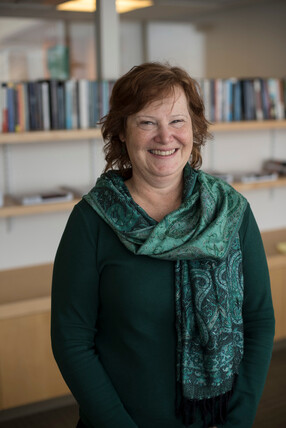
“At Harvard, there are not a lot of faculty from underrepresented backgrounds,” she says. “Students of color struggle to find someone like them who will understand their experience, and they often get advice that isn’t necessarily helpful. After a while, there’s a lack of trust. That’s why finding the right mentor early on is so important someone with a set of norms that ensure, from the very beginning, that discussions are inclusive. It’s more than just letting people know that it’s okay to speak up; it’s actively stepping back to allow others to contribute.”
Regardless of background, the power differential between advisor and advisee can often be a source of tension in the advising relationship. Faculty have an immense influence on the quality of an advisee’s educational experience, on their success in graduate school, and often on their career. While The Advising Project’s staff encourage faculty and students to see their relationship as a two-way street, they say that mentors must constantly keep in mind their position and its potential impact on students’ educational experience and on their lives.
“We talk to students about how they can empower themselves,” Rosenberg says, “but there will always be a power differential between them and their advisor. Faculty have to be conscious of the way that dynamic may adversely affect certain students who might be less likely to speak up. When we work with advisors, we try to make sure that’s clear and that they understand how their position impacts the way that students hear what they say.”
One of the ways that students can counterbalance the power differential in the advising relationship and enrich their overall academic experience is by building what Rosenberg, Gill, and Gonzalez Herrera call an “advising village.” They encourage students to seek guidance—both in their academic work and in career exploration—from many different mentors at Harvard, rather than focusing exclusively on their relationship with one.
“Harvard offers so many resources,” Gill says. “When students bring different perspectives and different people into their advising village, it lowers the power of any one person. While that’s already the norm in parts of the University, we want to normalize it for students in all GSAS graduate programs.”
When students bring different perspectives and different people into their advising village, it lowers the power of any one person. While that’s already the norm in parts of the University, we want to normalize it for students in all GSAS graduate programs.
—Grace Gill, PhD ’89
Professor of Astronomy David Charbonneau, PhD ’01, says that his department has made the advising village a formal part of the advising process. In astronomy, Charbonneau notes, every new graduate student is assigned an advising committee of four or five scientists from the moment they arrive on campus.
“The idea of the advising village is very explicit in the Department of Astronomy,” Charbonneau explains. “It’s basically a requirement that students meet with their committee at least once every semester as a group.”
Not all members of the astronomy advising committee are necessarily professors. Some may be scientists from the federal government who work at the Harvard Smithsonian Center for Astrophysics and bring perspectives from outside of academia. The result, Charbonneau says, is an advising team that has several different strengths instead of just one.
“Maybe one member of the committee is good at giving advice about how to tackle problems with computer code,” Charbonneau says. “Another may be a ‘big picture’ person who urges the student to give a talk at a conference outside their field to appreciate the impact of their work on other audiences. It’s very fruitful for the advisee.”
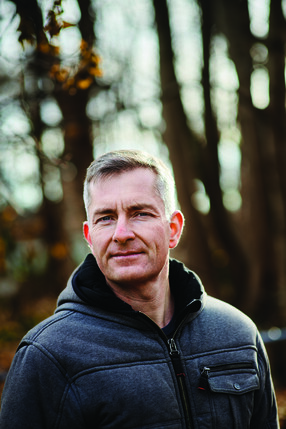
Expanding and diversifying the mentoring network also enables the program both to head off problems with the advising relationship and to catch them early when they arise. After each committee meeting, members confer in the student’s absence so that they can communicate their recommendations directly and candidly to the faculty advisor. Students also regularly meet one-on-one with the head of their committee—someone other than their advisor—to talk about how things are going.
“That ability to talk to a person in power who is not your advisor…it’s mattered tremendously to my students,” Charbonneau says. “It enables them to discuss concerns they might otherwise be reluctant to address and lets me know before things get out of hand.”
The improvements to the advising process that Dean Dench is encouraging are critical, Charbonneau says, if GSAS is to continue as a global leader in higher education. When competing for the most gifted students, it’s not enough to offer the best research opportunities on (and, in the case of astronomy, off) the planet. The School must also provide advising that helps young scholars reach their potential in their academic and professional careers.
“I think that this should be the most important thing for GSAS right now,” Charbonneau says. “It’s very clear that’s the message from Dean Dench. I’m delighted and impressed with her leadership on this issue.”
The idea of the advising village is very explicit in the Department of Astronomy. . . . That ability to talk to a person in power who is not your advisor . . . it’s mattered tremendously to my students. It enables them to discuss concerns they might otherwise be reluctant to address and lets me know before things get out of hand.
—Professor David Charbonneau, PhD ’01
Change Under Way
Students are hopeful about The Advising Project but say there’s much to be done to establish a true culture of advising. GSAS Student Council (GSC) President Alexis Turner, a PhD student in the Department of the History of Science, says that the compassion that motivates Dench and the project’s team is central to improved advising. Turner says that his experience with his own advisor, Professor Elizabeth Lunbeck, has been largely positive. Ironically, it was through his involvement last year in the GSC’s annual Everett Mendelsohn Excellence in Mentoring Awards that he came to realize that not all students were as fortunate as he.
“Most students said the same three things in their nomination: ‘This brilliant busy person takes time out of their day to email and talk to me; they respect my ideas and never belittle me; they care about me and ask how I’m doing if I’m going through something difficult in my personal life.’ I thought, ‘This is the bare minimum we should ask from the advising experience. If we’re giving awards for it, maybe it’s not the norm.’”
To make effective advising the norm, Turner works with both the GSC and The Advising Project team, ensuring that student concerns are heard by the administration. Sometimes, that means working on policy changes. Other times, it means creating new initiatives like “How to Harvard,” a content series in a variety of formats—video, podcasts, Zoom lectures, and more—that gives students tips on how to be an academic at Harvard.
“Harvard has a lot of first-generation students who don’t know the norms that others take for granted,” Turner explains. “Advisors often don’t realize what questions their students have. Students are too ashamed to tell them. That can create a lot of anxiety. We hope that ‘How to Harvard’ can not only inform students but also alert advisors to the things their advisees need to know.”
Turner is encouraged by the conversations started by The Advising Project since its launch and finds it “heartening to see both junior and senior faculty thinking about mentorship.” He says that he and his fellow students will be watching in the years ahead, however, to see whether or not the thoughts and words translate to action.
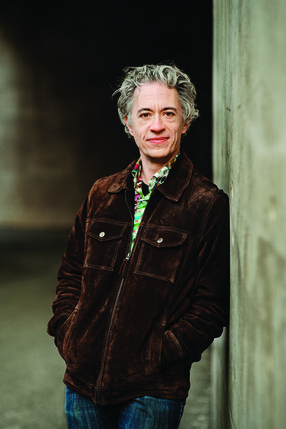
As The Advising Project continues, Rosenberg is energized by the progress the project has made as well as the work ahead. The Faculty of Arts and Sciences’ Information for Faculty Offering Instruction in Arts and Sciences handbook now includes a section on the basic issues of graduate student advising. Communications on the importance of advising have been sent to faculty at the University who work with PhD students. Perhaps ironically, the remote teaching and working arrangements necessitated by the pandemic have only highlighted the importance of advising relationships, encouraging students, faculty, and staff to reach out to The Advising Project team for workshops. Rosenberg says that the task now is to keep the momentum going.
“From the very beginning, people have recognized the importance of this work,” she says. “Faculty, students, and staff are excited, and many already have great practices. We’d like to have everyone participate in full eight-hour mentorship trainings, but we work with departments and programs according to their needs. Even small changes—the way we start a conversation, setting a clear meeting schedule—can make a difference.”
Dench says that although there is plenty of work to do, The Advising Project is beginning to improve the educational experience for GSAS students and their mentors. Faculty recognize mentoring as a set of skills that must be developed and honed throughout their career. Students are starting to feel more empowered in their relationships with advisors and less stressed as they find new support from a diversified network of resources. The culture change that Dench hoped The Advising Project would engender when it was launched is now underway.
“The Advising Project is beginning to make effective advising more visible across the GSAS—and Harvard,” she says. “It’s now a topic that’s beginning to enter everyday conversations around campus. Most of all, we’re putting student well-being at the center of the mentoring relationship. I think GSAS is on its way to developing a robust culture of advising. As dean, as a member of the faculty, and as an advisor myself, I couldn’t be more pleased.”
Illustration by Celyn / Portraits by Max Gerber, Jared Leeds, and Tony Rinaldo
Get the Latest Updates
Join Our Newsletter
Subscribe to Colloquy Podcast
Simplecast


